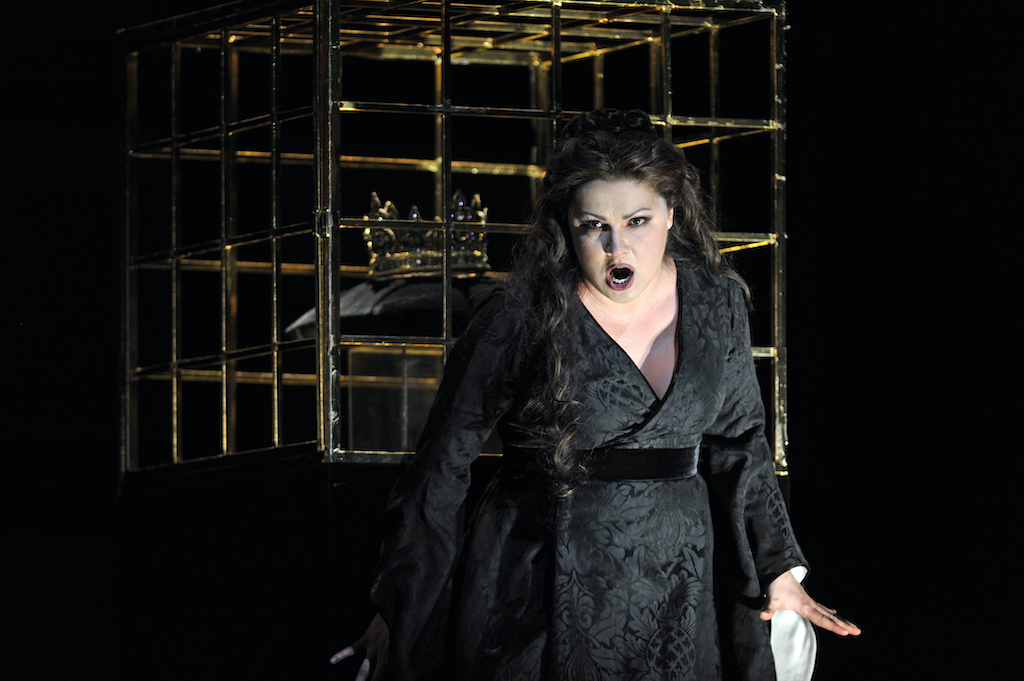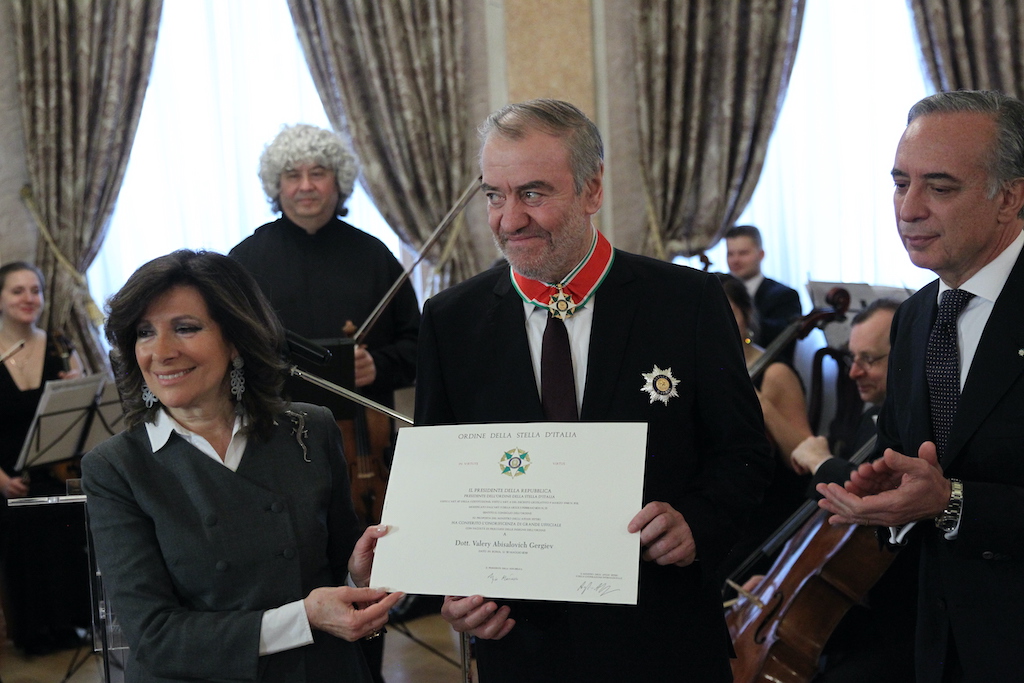Lionizing and sanctioning Russian artists
Sanctions imposed by Western cultural bureaucrats on Russian celebrity artists who refuse to condemn the war in Ukraine stem from a guilty conscience.

In a nutshell
- Russian artists are under pressure in the West to speak up against Moscow’s war
- Many intellectuals in the West long ignored Russia’s inhumane policies
- Moscow’s long-standing hostility to Ukrainian culture should not be overlooked
The war in Ukraine has resurrected the old specter in the West – political instrumentalization of the arts. This setback occurred when “culture wars” seemed to be fading as an excess of the past.
World-famous Russian music artists, the soprano Anna Netrebko and the conductor Valery Gergiev, had the misfortune to come into the focus of attention first. They were ultimately asked to distance themselves from the Russian war of aggression against Ukraine. Mr. Gergiev, who had conducted Tchaikovsky’s “Queen of Spades” in Milan’s La Scala just the night before the invasion, refused and was banned from performing. Soon, he was forced to cancel engagements in Carnegie Hall and other venues in the United States. Ms. Netrebko was not allowed back on stage until, after weeks of hesitation, she spoke out unequivocally against the war on March 30 and expressed solidarity with the Ukrainian victims. She remains unwelcome at the Metropolitan Opera in New York.
The boycott
The sanctions were not limited to Russian artists. Also affected, for example, have been the Greek conductor Teodor Currentzis and his musicAeterna ensemble made up of musicians from several countries. The charge? The group is financed by a bank that is said to be close to Russian President Vladimir Putin. Like Mr. Gergiev, Mr. Currentzis had refused to condemn the war against Ukraine. The intertwining of art and politics is not unique to Russia, but apart from China and North Korea, it is hardly as close as in any other country.
Since virtually all Russian stages and orchestras are financed either by the state or by oligarchs, there are hardly any ensembles now that are allowed to perform in the West.
Ukrainian diplomats regularly protest when Russian musicians are invited to solidarity concerts with their country or when the program includes works by Russian composers. In Katowice, Poland, American Lawrence Foster was banned from conducting Tchaikovsky’s Third Symphony, and the Prague State Opera canceled Tchaikovsky’s fairy-tale opera “The Little Slipper.” The rector of the University of Milan-Bicocca even forbade the lecture of a Dostoevsky expert to avoid “polemics” and only withdrew this order under public pressure.
The boycott of Russian composers is considered barbaric, but things are a bit more complicated.
The sanctions imposed on Russian artists by bureaucrats at universities and cultural institutions for refusing to bend to Western public pressure are harshly criticized by European news media commentators. The boycott of Russian composers is considered barbaric. But things are a bit more complicated. In the theatrical thunder that sometimes drowns out even the din of war, it is easy to overhear how different motives have led to this widespread boycott.
The coin’s two sides
The war President Putin is waging against Ukraine did not begin with the Russian invasion on February 24; it has been under way for eight years. Yet neither the annexation of Crimea in 2014, which violated international law, nor the Russian staging of “popular uprisings” in eastern Ukraine has affected political, economic and cultural relations between the EU and Russia in any significant way. Like German Foreign Minister Annalena Baerbock, who claims to have woken up “in another world” only the day after the invasion, cultural bureaucrats have had a late awakening experience due in no small part to a guilty conscience.

The case of Mr. Gergiev, President Putin’s “cultural ambassador,” is a particularly glaring example. It was by no means a secret that the director of St. Petersburg’s Mariinsky Theatre had conducted a concert in the oasis city of Palmyra in 2016 to celebrate Mr. Putin’s victory in the Syrian war. This blatant act of political servility did not prevent the city of Munich from extending Mr. Gergiev’s contract as chief conductor of the Munich Philharmonic symphony orchestra two years later and from thanking him explicitly.
The boycott of Ukrainian culture in Russia has met with far less media attention and criticism. Russian pianist Alexei Lubimov reported that one of his concerts in Moscow was canceled by the police because of an alleged bomb threat. The actual reason was that the program included “Steps,” a work by Ukrainian composer Valentin Silvestrov. Svetlana Rips was fired as director of Mikhail Pletnev’s Russian National Orchestra because, like Mr. Pletnev, who lives abroad, she had failed to provide the desired support for the “special operation” in Ukraine.
Long history of brutality
The persecution and suppression of Ukrainian culture did not begin in Russia with the invasion of Ukraine. Books were first confiscated from the Library of Ukrainian Literature in Moscow in 2010. In 2015, the institution was closed under the charge of disseminating nationalist and anti-Russian writings. Library director Natalya Sharina, a Russian, was arrested and, after 20 months under house arrest, convicted in a political trial of “extremism” and “theft.”
Under the regime of Joseph Stalin (1922-1953), Ukrainians were considered counterrevolutionaries and kulaks (land-owning peasants, considered enemies of the state). Ethnic Russians were settled in areas where most Ukrainians fell victim to the Holodomor, the Soviet state-imposed famine (1932-1933). In his secret report on Stalinist crimes presented at the 20th Party Congress of the Communist Party of the Soviet Union in 1956, after the tyrant’s death, First Secretary Nikita Khrushchev spoke of Stalin’s intention to deport the Ukrainians and the Volga Germans, the Chechens, the Crimean Tatars, and other peoples. The plan failed because no space could be found to accommodate 40 million people. During Russia’s civil war, collectivization, Holodomor and World War II, an estimated 20 million Ukrainians perished.
As the Russian leader understands it, the role of culture is to strengthen the nation through homogenization and serve as an arm of national politics.
Discrimination against Ukrainians began toward the end of the 18th century. To Russian nationalists, they were “Little Russians” – backward peasants linguistically and culturally inferior because they had been Westernized during three centuries of Polish rule. It was up to the Russians to absorb the wayward brothers into their empire and introduce them to the higher Russian culture.
Great Russian nationalism here resembles Great Serbian nationalism, which regarded the Croats as Serbs who had alienated themselves from their nation by turning to Roman Catholicism. Czech nationalists in the 19th and 20th centuries adopted a comparable paternalistic attitude toward Slovaks, perceived as “Magyarized” Czechs. Stronger neighbors opposed the national aspirations of Ukrainians, Croats and Slovaks on the grounds that they contradicted the true interests of the Slavic brethren and handed them over to foreign powers.
President Putin’s favorite ideologue philosopher, Ivan Ilyin (1883-1954), considered Russia’s Ukrainian “little brothers” to be just like Croats, Slovenes, Slovaks, Basques and Catalans – weak ethnicities incapable of forming states of their own. As the Russian leader understands it, the role of culture is to strengthen the nation through homogenization and serve as an arm of national politics. Russia, Mr. Putin said, is defending its culture against a West that “denies the moral foundations and any traditional identity, be it national, religious, cultural or even gender-based.” However, nothing has damaged the reputation of Russian culture more than Moscow’s war against Ukraine.
The Russian publicist Sonja Margolina, who lives in Berlin, stated in the Neue Zurcher Zeitung that we are witnessing “the self-abolition of Russia as a cultural nation.” She observed, of the Western reaction, “[i]t is absurd to want to cancel Dostoevsky and productions by Russian authors, composers or directors from the theater and opera programs. It is up to the audience alone to decide on their value. No cultural boycott, no sanction can hurt Russia more than the tears of a Ukrainian child.”







